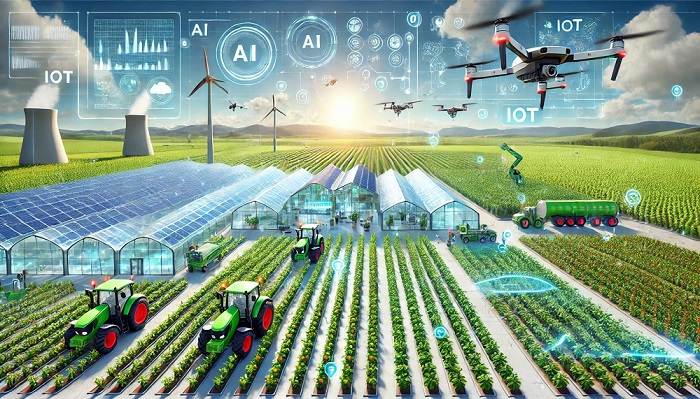The future of smart farming is set to be transformed significantly by the integration of IoT (Internet of Things) and AI (Artificial Intelligence). Here are some key aspects of how these technologies will shape agriculture:
1. Precision Agriculture
IoT sensors can monitor soil moisture, temperature, and nutrient levels in real-time. This data enables farmers to apply water, fertilizers, and pesticides more precisely, reducing waste and increasing crop yields.
2. Automated Equipment
AI-driven machinery, such as autonomous tractors and drones, can perform tasks like planting, harvesting, and monitoring crops with minimal human intervention. This can enhance efficiency and reduce labor costs.
3. Predictive Analytics
AI algorithms can analyze historical data alongside real-time inputs to predict weather patterns, pest infestations, and crop diseases. This allows farmers to make proactive decisions and mitigate risks.
4. Supply Chain Optimization
IoT devices can track products from farm to table, improving transparency and reducing food waste. AI can optimize logistics and inventory management, ensuring that produce is delivered fresh and efficiently.
5. Smart Livestock Management
IoT wearables can monitor livestock health, tracking vital signs and behavior. AI can analyze this data to identify health issues early and improve overall animal welfare.
6. Sustainability Practices
By using data to make informed decisions, farmers can implement more sustainable practices, such as crop rotation and reduced chemical use. This not only benefits the environment but also meets the growing consumer demand for sustainably sourced products.
7. Data-Driven Decision Making
Farmers can leverage AI and IoT data analytics to make informed decisions regarding planting schedules, crop selection, and resource allocation, leading to more resilient farming practices.
8. Remote Monitoring and Control
Farmers can manage their operations from anywhere using mobile apps connected to IoT devices, allowing for timely interventions and better resource management.
9. Enhanced Crop Breeding
AI can assist in identifying genetic traits in plants that lead to higher yields or disease resistance, accelerating the breeding process and enhancing food security.
The combination of IoT and AI in smart farming not only boosts productivity but also promotes sustainability and resilience in the agricultural sector. As these technologies continue to evolve, we can expect significant advancements that will help meet the demands of a growing global population while minimizing environmental impact.
